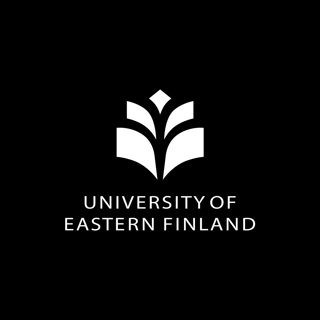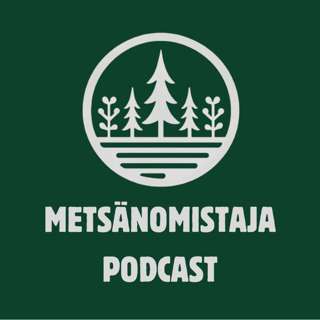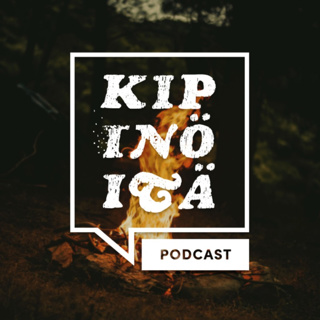
Biotech Risks and Asteroid Anxiety
Scientists gather this week to tackle emerging risks from cutting-edge biotech, echoing the landmark Asilomar conference that shaped genetic engineering safety 50 years ago. What new threats face us, and how can the scientific community stay ahead of them?Also in the programme: are you feeling asteroid anxiety? We take a closer look at the chances that ‘2024 YR4’ will hit us... We get the latest calculations on this space rock's potential collision course with Earth in 2032.And, as members of the Royal Society debate whether to expel Elon Musk from their ranks, we explore past fellows who rattled the establishment. Fellows meet next month to decide his fate.If you want to find out more about the history of genetic engineering - from the Asilomar conference to the present day - search for Matthew Cobb's series 'Genetic Dreams, Genetic Nightmares' on BBC Sounds. To discover more fascinating science content, head to bbc.co.uk search for BBC Inside Science and follow the links to The Open University. Presenter: Victoria Gill Producers: Ilan Goodman, Sophie Ormiston & Ella Hubber Editor: Martin Smith Production Co-ordinator: Jana Bennett-Holesworth
20 Maalis 28min

US science in chaos
The United States is the world’s science superpower. But right now, much of its research community is in a state of confusion.In the past few weeks, the Trump administration has issued a huge number of orders – amongst them, large funding cuts for scientific institutions. We unpick what the implications are for the country’s role on the global scientific stage.Also in the programme, we take another look at phone bans in schools. Why are the results of a recent study so different to the personal experience of teachers and students?And Britain has a new snake – and it’s apparently thriving. Where has it come from and should we be worried?To discover more fascinating science content, head to bbc.co.uk search for BBC Inside Science and follow the links to The Open University. Presenter: Victoria Gill Producers: Ilan Goodman & Sophie Ormiston Editor: Martin Smith Production Co-ordinator: Josie Hardy
13 Maalis 28min

The World’s Biggest Iceberg
It’s the biggest story of recent weeks. Literally. Trillion-tonne iceberg A23a is on the move. But where is it headed and why – and what might it mean for the scientists and penguins in its path? And from a giant ‘megaberg’ to a giant pile of highly radioactive material, we find out what locking away a load of radioactive waste has in common with baking a cake. And we’re joined by science journalist Caroline Steel to guide us through this week’s science news. We’ll hear about the first study into whether banning phones in schools works, why scratching an itch might have benefits beyond just satisfaction, and the perfect formula to boil an egg... Presenter: Victoria Gill Producers: Sophie Ormiston, Ilan Goodman & Gerry Holt Editor: Martin Smith Production Co-ordinators: Jana Bennett-Holesworth & Josie HardyScience-backed boiled egg recipe:- You need two pans… and exactly 32 minutes - Keep one pan at 100 degrees Celsius (boiling) and the other pan at 30 degrees Celsius - Move the egg between the two every two minutes for 32 minutesEnjoy!To discover more fascinating science content, head to bbc.co.uk search for BBC Inside Science and follow the links to The Open University.
6 Maalis 28min

Is 1.5 still alive?
1.5C. It’s THE number we talk about when we talk about climate change. But what does 1.5C actually mean now – and as the world saw record-breaking heat last year, does it even matter anymore? Climate scientist Mark Maslin and environmental psychologist Lorraine Whitmarsh discuss. Also this week, new clues about how life may have begun from a dusty space rock called Bennu, and New Scientist’s Graham Lawton brings us the science of the week, including AI’s ‘Sputnik moment’, the mice born with two fathers, and how often do unexpected discoveries happen? Presenter: Victoria Gill Producers: Sophie Ormiston, Ella Hubber & Gerry Holt Editor: Martin Smith Production Co-ordinator: Jana Bennett-Holesworth If you want to test your climate change knowledge, head to bbc.co.uk search for BBC Inside Science and follow the links to The Open University to take the quiz.
27 Helmi 28min

Next-gen batteries and 'dark oxygen'
Following a devastating fire at the world’s largest lithium-ion battery plant, Inside Science probes the present and future of a technology we rely on every day. Lithium-ion batteries were a technological breakthrough, powering everything from mobile phones to electric vehicles, but as funding is poured into researching alternatives, are we on the verge of something safer, faster, and more efficient?Also this week, we learn about the “dark oxygen” potentially being produced in the deep ocean and friend of Inside Science, Anjana Ahuja, brings us her favourite science stories of the week, including a new material described as ‘chainmail on steroids’ and contagious urination.Presenter: Marnie Chesterton Producers: Ella Hubber, Sophie Ormiston & Gerry Holt Editor: Martin Smith Production Co-ordinator: Jana Bennett-Holesworth To discover more fascinating science content, head to bbc.co.uk search for BBC Inside Science and follow the links to The Open University.
20 Helmi 28min

UK AI & science-optimised pasta
Artificial intelligence is the big talking point of the week, with UK PM Sir Keir Starmer announcing a drive to unleash its full potential. It’s already being used in healthcare, but recent studies have exposed both strengths and weaknesses. We’re joined by Dr James Kinross, a surgeon and researcher at Imperial College London, to discuss the positives and the pitfalls. Also this week, we talk all about what a Trump presidency might mean for science; why powerful winds are driving the deadly fires in LA – and anyone for science-optimised pasta? Marnie is helped by a physicist to make the perfect Cacio e Pepe. Spoiler alert: Recipe below!Presenter: Marnie Chesterton Producers: Sophie Ormiston & Gerry Holt Editor: Martin Smith Production Co-ordinator: Jana Bennett-Holesworth To discover more fascinating science content, head to bbc.co.uk search for BBC Inside Science and follow the links to The Open University.Science-backed Cacio e Pepe: For two servings: - 240 g pasta - Black pepper - 160 g pecorino cheese - 4g corn starch in 40ml water Dissolve the corn starch in water and heat until it forms a gel. Let this cool before combining it with the cheese and black pepper. Cook the pasta, then drain, keeping some of the water. Let it cool then mix the pasta with the sauce. Enjoy!
13 Helmi 28min

Science in 2025
How will science shape up in 2025? Marnie Chesterton is joined by a panel of science watchers to discuss what we can expect from the year ahead. We'll talk big science, small science - and the plain cool. What will science do for us in the coming year? On the Inside Science panel, we have: - Tom Whipple, science editor of The Times - Shaoni Bhattacharya, former acting science editor of The Observer & freelance editor at Research Professional News - Penny Sarchet, commissioning editor at New Scientist Presenter: Marnie Chesterton Producer: Gerry Holt Editor: Martin Smith Production Co-ordinator: Jana Bennett-Holesworth To discover more fascinating science content, head to bbc.co.uk search for BBC Inside Science and follow the links to The Open University.
6 Helmi 28min

The Science of Laughter
Why do we laugh more when we’re with others? Are humans the only animals that laugh? Does ‘laughter yoga’ actually do anything? We're delving into the neurobiology, evolutionary history, and health effects of a good old chuckle.Live from the Hay Festival Winter Weekend, Marnie Chesterton is joined by laughter expert and neuroscientist, Professor Sophie Scott, and an expert in making people laugh, comedian Miles Jupp, in this side-splitting panel show.Presenter: Marnie Chesterton Producer: Ella Hubber Editor: Martin Smith Production Co-ordinator: Jana Bennett-Holesworth To discover more fascinating science content, head to bbc.co.uk search for BBC Inside Science and follow the links to The Open University.
30 Tammi 28min





















